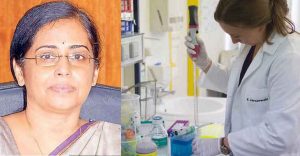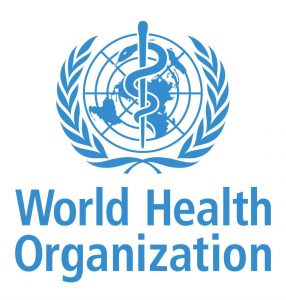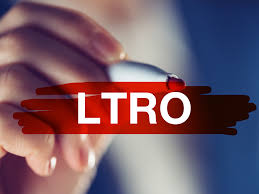Table of Contents
Daily Current Affairs for Government Exams:
Today Current Affairs:10th April 2020 for UPSC IAS exams, State PSC exams, SSC CGL, State SSC, RRB, Railways, Banking Exam & IBPS, etc
Contents:
- Kerala Gets Nod for Trial of Plasma Therapy.
- Pre-conception & Pre-natal Diagnostics Techniques (PC & PNDT) Act
- Epidemic Diseases (Amendment) Ordinance, 2020
- WHO, along with the International Council of Nurses (ICN) and the Nursing Now campaign, has released a report titled, “State of the World’s Nursing”.:
- Long-term repo operations (LTROs)
- The Saudi-led Coalition:
- Neighbouring rights law
- Other important current affairs;
1. Kerala Gets Nod for Trial of Plasma Therapy:

Kerala has got the Indian Council of Medical Research (ICMR) approval for the clinical protocol exploring the feasibility of convalescent plasma transfusion which may be administered to severe Covid-19 patients.
- A proposal was submitted to ICMR saying that the Transfusion Medicine Department of the Sree Chitra Tirunal Institute for Medical Sciences and Technology, Kerala would help the Health Department in exploring the possibility of Convalescent Plasma (CP) therapy for Covid-19 treatment.
- The move was taken as a precautionary step to be prepared for the more severe second and third waves of the novel coronavirus pandemic.
Convalescent Plasma Therapy:
- Convalescent plasma (CP) therapy is not a new therapy and banks on the age-old concept of passive immunity.
- Basis of the Therapy:
- The convalescent plasma therapy seeks to make use of the antibodies developed in the recovered patient against the coronavirus.
- The whole blood or plasma from such people is taken, and the plasma is then injected in critically ill patients so that the antibodies are transferred and boost their fight against the virus.
- Time Period for Infusion:
- A study in The Lancet Infectious Diseases stated that a Covid patient usually develops primary immunity against the virus in 10-14 days.
- Therefore, if the plasma is injected at an early stage, it can possibly help fight the virus and prevent severe illness.
- Infusion into Covid-19 Patients:
- The plasma can be infused into two kinds of Covid-19 patients, those with a severe illness or individuals at a higher risk of getting the virus.
- However, while plasma transfers immunity from one person to another, it is not known if it can save lives in Covid-19 infection.
- The treatment could be effective for patients in the age group 40-60 but may be less effective for people aged beyond 60 years.
2.Pre-conception & Pre-natal Diagnostics Techniques (PC & PNDT) Act:

Ministry of health and family welfare has clarified that it has not suspended the PC&PNDT Act, which prohibits sex selection before or after conception.
- In view of the ongoing lockdown, due to COVID19 pandemic, the Health Ministry has issued a notification dated April 4, 2020, to defer/suspend certain provisions under the PC&PNDT Rules 1996.
- These Rules pertain to applying for renewal of registration if falling due in this period, submission of reports by diagnostics centres by 5th day of the following month and submission of quarterly progress report (QPR) by the States/UTs.
- But, a section of the media is speculating that the PC&PNDT (Pre Conception and Pre Natal Diagnostic Techniques (Prohibition of Sex Selection)) Act 1994 has been suspended by the Ministry of Health and Family Welfare.
About PCPNDT Act:
- The Pre-conception & Pre-natal Diagnostics Techniques (PC & PNDT) Act, 1994 was enacted in response to the decline in Sex ratio in India, which deteriorated from 972 in 1901 to 927 in 1991.
- The main purpose of enacting the act is to ban the use of sex selection techniques before or after conception and prevent the misuse of a prenatal diagnostic technique for sex-selective abortion.
- Offences under this act include conducting or helping in the conduct of prenatal diagnostic technique in the unregistered units, sex selection on a man or woman, conducting PND test for any purpose other than the one mentioned in the act, sale, distribution, supply, renting etc. of any ultrasound machine or any other equipment capable of detecting sex of the foetus.
- The act was amended in 2003 to improve the regulation of the technology used in sex selection.
- The Act was amended to bring the technique of preconception sex selection and ultrasound technique within the ambit of the act.
- The Act provides for the prohibition of sex selection, before or after conception.
3.Epidemic Diseases (Amendment) Ordinance, 2020:
The Odisha government has promulgated an ordinance to deal with COVID 19 spread by amending Section 3 of the Epidemic Diseases Act, 1897.
Overview of the Epidemic Diseases (Amendment) Ordinance, 2020:
- Anyone who disobeys any regulation or order made under the Act, is liable for imprisonment up to two years or with a fine of up to Rs 10,000 or with both.
- All offences under the Act shall be cognisable and available.
- Any person disobeying any regulation or order made under the 1897 Act was deemed to have committed an offence punishable under Section 188 of the Indian Penal Code (IPC), under Section 3 of the Act.
- A provision has also been also made in the Ordinance for special procurement of critical drugs and consumables to manage the novel coronavirus disease (COVID-19) outbreak.
- Odisha’s department of health and family welfare has also framed regulations which have two provisions:
- Not wearing a mask in public place shall be considered as an offence.
- The penalty for the first three instances has been kept at Rs 200 while for offences beyond that, the penalty shall be Rs 500 for each offence in the state.
Epidemic Diseases Act of 1897:
- It is routinely enforced across the country for dealing with outbreaks of diseases such as swine flu, dengue, and cholera.
- It was introduced by colonial government to tackle the epidemic of bubonic plague that had spread in the erstwhile Bombay Presidency in the 1890s.
4.WHO, along with the International Council of Nurses (ICN) and the Nursing Now campaign, has released a report titled, “State of the World’s Nursing”.:

- Globally, there are roughly 36.9 nurses per 10,000 people, with variations within and across regions.
- There are almost 10 times more nurses in the Americas than in the African region.
- While there are 83.4 nurses per 10,000 population in the former, there are 8.7 nurses per 10,000 population in the latter.
- By 2030, there will be a shortage of over 5.7 million nurses worldwide.
- The largest shortfall in absolute numbers is in the South-East Asian region, while in the Americas and Europe, the problem is different since they are facing an ageing nursing workforce.
- As nurses and other medical workers are at the frontlines of this global pandemic, some of the key issues they face include shortages of personal protective equipment (PPE) including face masks, eye-protective gear and gloves, and also the psychological stress faced by some medical staff.
Nursing in India:
- As of 2018, there were over 1.56 million nurses in India and 772,575 nursing associates. Out of this, the share of professional nurses is 67 per cent, with 322,827 graduating every year with a minimum training period of four years.
- Within the health workforce, nurses comprise 47 per cent of the medical staff, followed by doctors (23.3 per cent), dentists (5.5 per cent) and pharmacists (24.1 per cent).
- Further, an overwhelming majority of the nurses are women — 88 per cent in India. This is in line with the composition of nursing seen globally as well, where 90 per cent are women.
5.Long-term repo operations (LTROs):

The Reserve Bank of India (RBI) has said it has received Rs 1.13 lakh crore worth of bids in the targeted long term repo operation (TLTRO) conducted for an amount of Rs 25,000 crore with a three-year tenor.
- The RBI received 18 bids in the auction.
- The total bids that were received amounted to Rs 1.13 lakh crore, implying a bid to cover ratio the amount of bids received relative to the notified amount — of 4.5.
- The LTRO is a tool under which the central bank provides one-year to three-year money to banks at the prevailing repo rate, accepting government securities with matching or higher tenure as the collateral.
6.The Saudi-led Coalition:

On April 9, 2020, the Saudi Arabia led coalition declares cease fire in Yemen. The cease fire has been declared for a two-week period.
- Yemen War
- Yemen was devastated by a conflict that began in 2015.
- The Houthis that are backed by the Iran military took much of the control in west of the country.
- The coup led by the Houthis forced President Abdrabbuh Mansour Hadi to flee abroad.
- The rise of the group alarmed Saudi Arabia and eight other Arab states to lead a military campaign restoring Hadi’s Government.
- The war has so far killed 7,500 civilians. Around 80% of the population in the country are in need of humanitarian assistance and 10 million are one step away from famine.
The Saudi-led Coalition
- The Intervention of the Coalition in Yemen is said to be in compliance with Article 2 of the United Nations Charter. The Coalition intervened Yemen in the code name “Operation Decisive Storm”.
- The Coalition includes Saudi Arabia, Sudan, UAE, Bahrain, Qatar, Kuwait, Egypt, Jordan, Morocco, Senegal. The coalition was supported by US as well.
7. Neighbouring rights law:

- It is mentioned in Europe’s new digital copyright law.
- It is designed to ensure news publishers are compensated when their work is shown on websites, search engines and social media platforms.
- France’s competition regulator recently said that Google must start paying media groups for displaying their content, ordering it to begin negotiations after refusing for months to comply with Europe’s new digital copyright law.
- Google, which effectively has a lock on internet searches in Europe, refused to comply, saying that articles, pictures and videos would be shown in search results only if media groups consent to let the tech giant use them at no cost.
- If they refuse, only a headline and a bare link to the content will appear, Google said, almost certainly resulting in a loss of visibility and potential ad revenue for the publisher.
Other important current affairs;
1.The Centre has sanctioned 15,000 crore rupees for India COVID-19 Emergency Response and Health System Preparedness Package.
- Out of it, 7,774 crore rupees will be utilized for immediate COVID-19 Emergency Response and rest for medium-term support of one to four years to be provided under mission mode approach.
2.The Organisation for the Prohibition of Chemical Weapons (OPCW) has for the first time explicitly blamed Syria for toxic attacks, saying President Bashar al-Assad’s air force used the nerve gas sarin and chlorine three times in 2017
- .OPCW is an intergovernmental organisation and the implementing body for the Chemical Weapons Convention, which entered into force in 1997.
- It oversees the global endeavour to permanently and verifiably eliminate chemical weapons.
3.The Centre for Development of Advanced Computing (C-DAC) has prepared a data science-based tool to make easy the task of tracking the movements of Covid-19 patients or quarantined people across the country.
- The system has been named National Analytical Platform for Dealing with Intelligent Tracing, Tracking and Containment (NAADI).
- The information generated by the tool would be accurate up to a metre and would be of much help for the medical professionals, law enforcement agencies and data scientists.
- SAMHAR project
- The development of this tool is among the several projects undertaken by C-DAC under Supercomputer using Artificial Intelligence, Machine Learning, Healthcare Analytics based Research, Covid-19 (SAMHAR).
- The SAMHAR project is in partnership with the National Supercomputing Mission established in association with startups and industries to build a rapid supercomputing system and research community for India to fight Covid-19
4. The Employees’ Provident Fund Organisation (EPFO) has processed nearly 1.37 lakh claims and disbursed an amount of Rs 279.65 crore since the launch of the online facility allowing advance withdrawal on March 29, 2020.
- The scheme allowing advance withdrawal from EPF accounts was notified in the wake of the coronavirus pandemic.
- It allows withdrawal not exceeding the basic wages and dearness allowances for three months or up to 75% of the PF balance, whichever is less.
- The Finance Minister as part of the Pradhan Mantri Garib Kalyan Yojana had said that the government will bear the cost of the provident fund contributions, both of the employer and employees 12% each for the three months (April – June) for those establishments which have up to 100 employees and 90% of whom are earning less than ₹15,000 per month as salary.
- The government also relaxed withdrawal conditions from EPF accounts.
5. India has prepared a “containment” plan, essentially an updated version of an earlier Health Ministry blueprint that was drawn up when the only COVID-19 cases were those coming from abroad.
- The plan outlines a strategic approach based on the stage of transmission.
- Five stages have been identified — travel-related case reported in India; local transmission; large outbreaks amenable to containment; widespread community transmission; India becoming endemic for COVID-19.
- The plan is subject to revisions if required, as and when there is greater clarity about some of these aspects.
6. A new study conducted by the University of Manchester, UK and Mahavir Cancer Institute and Research Centre, Phulwarisharif in Patna has found uranium contaminating the groundwater in 10 districts of Bihar.
- Supaul, Gopalganj, Siwan, Saran, Patna, Nalanda, Nawada, Aurangabad, Gaya and Jehanabad are the 10 districts.
- Uranium concentrations are elevated mostly in the North West-South East band along and to the east of Gandak river and running south of the Ganga river.
- The maximum uranium content was in Supaul, 80 microgram of uranium per litre of water.
7. The COVID 19 pandemic has made the ubiquitous gamosa, a decorative cotton towel, evolve from memento to mask.
- The Gamosa is an article of significance for the people of Assam.
- It is generally a white rectangular piece of cloth with primarily a red border on three sides and red woven motifs on the fourth.
- Assam has traditionally had two types of gamosas the ukaor plain kind used to wipe sweat or dry the body after a bath, and the phulam, which is decorated with floral motifs to be gifted as a memento or during festivals such as Bihu.
- The gamosa’s graph as a symbol of protest rose during the anti-foreigners Assam Agitation from 1979 to 1985. The extremist United Liberation Front of Asom too used the towel with “revolutionary” motifs.
8. Operation Shield to fight Covid-19: Announced by Delhi Government.
- SHIELD stands for sealing, home quarantine, isolation and tracing, essential supply, local sanitation and door-to-door checks.
- It will be implemented in 21 localities identified as containment zones in Delhi.
9. World Homeopathy Day being observed today
- World homeopathy day is celebrated each year on April 10 to honor the birth of the father of the Homeopathy medicine system Dr. Samuel Hahnemann.
- The theme of World Homeopathy Day 2020 is “Enhancing the scope of Homoeopathy in Public Health”.
- The way to heal in homeopathy is by the doctrine of ‘similia similibus curantur’ i.e likes are cured by likes.
11.Doordarshan has emerged among the highest watched channel in India.
- According to Broadcast Audience Research Council, telecast of Ramayan and Mahabharat was the key attribute that helped DD while getting back classics like Shaktiman and Buniyaad has also played a critical role.
- The overall TV viewership grew 4% as compared to the previous week and was 43% higher than the pre-COVID-19 outbreak period.




